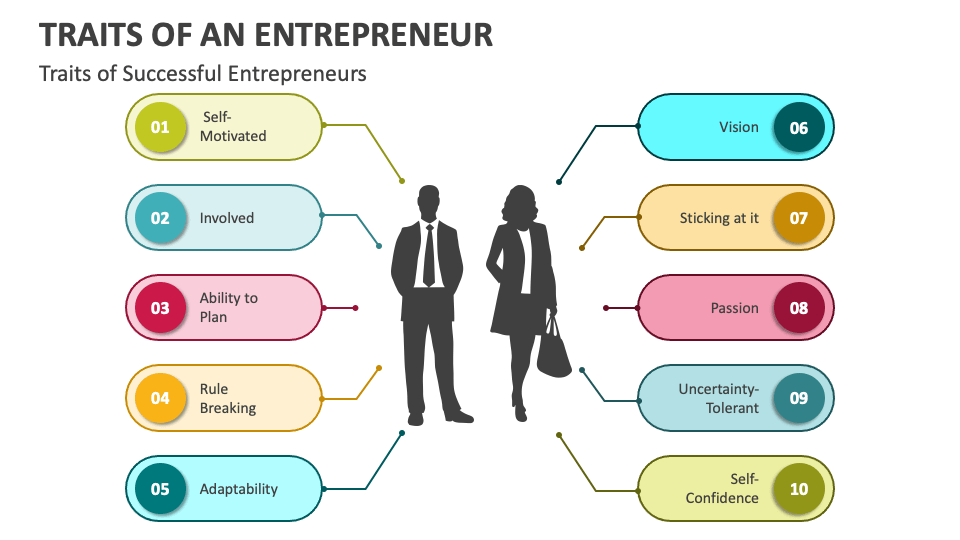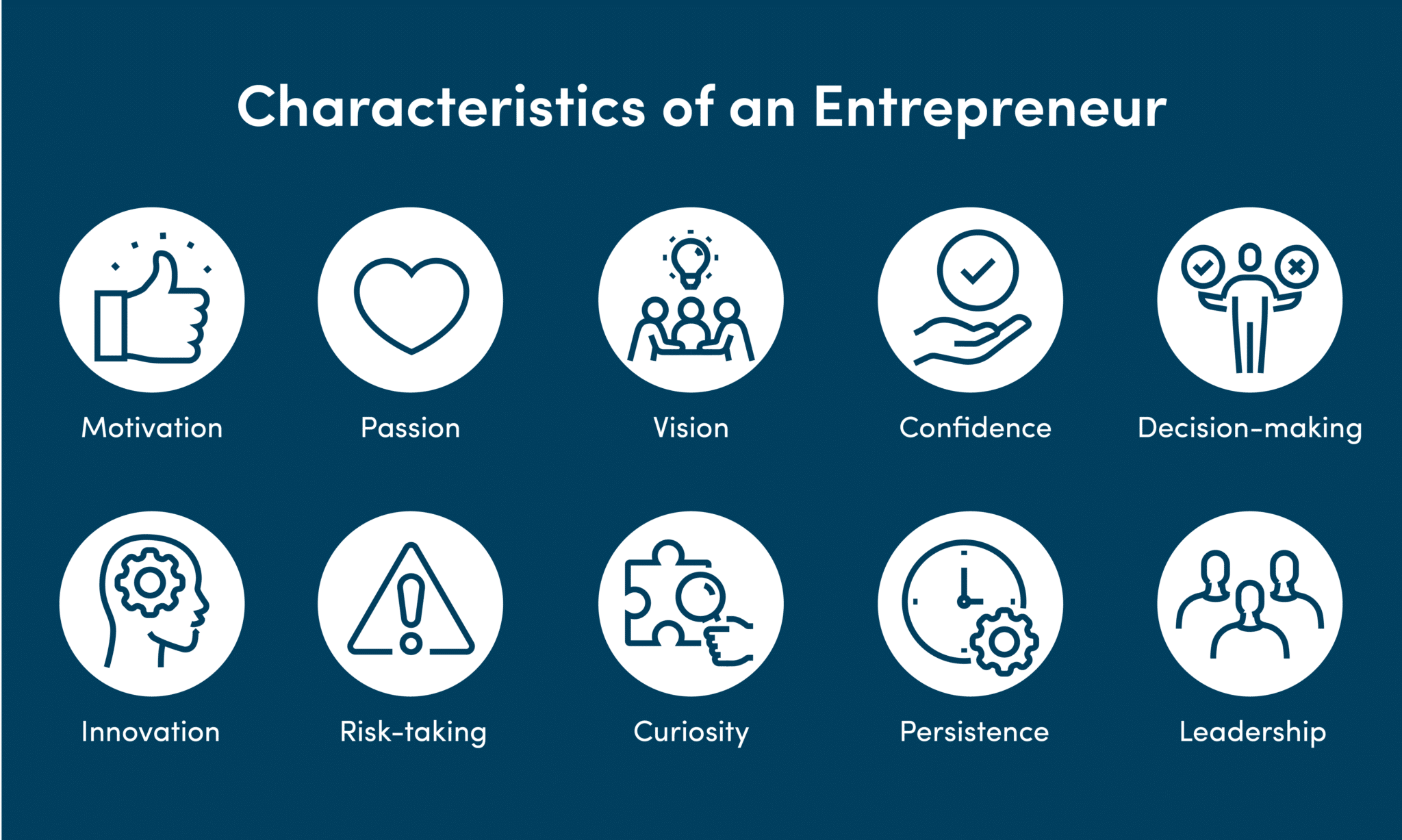Common Characteristics Of Successful Entrepreneurs

In a world increasingly shaped by innovation and self-determination, the entrepreneurial spirit burns brighter than ever. But what distinguishes those who merely dream of building empires from those who actually construct them? The path to entrepreneurial success is rarely linear, and the journey is paved with both triumphs and setbacks.
This article delves into the common characteristics that define successful entrepreneurs, drawing from research, expert opinions, and real-world examples to offer a comprehensive understanding of the traits, skills, and mindsets that propel individuals to build thriving businesses. We examine both the inherent qualities and the learned behaviors that contribute to entrepreneurial achievement.
The Indomitable Spirit: Passion and Perseverance
At the heart of every successful entrepreneur lies an unwavering passion for their venture. This passion isn't just a fleeting interest; it's a deep-seated belief in their idea and a burning desire to bring it to fruition. According to a study by the Small Business Administration (SBA), entrepreneurs who are truly passionate about their work are more likely to overcome obstacles and persist through challenging times.
Perseverance, inextricably linked to passion, is another cornerstone of entrepreneurial success. The entrepreneurial journey is rarely smooth, with inevitable hurdles and disappointments along the way. Resilience – the ability to bounce back from setbacks – is critical.
As Elon Musk, CEO of Tesla and SpaceX, famously stated, "If things are not failing, you are not innovating enough."
Strategic Vision and Adaptability
Successful entrepreneurs possess a clear strategic vision, a roadmap for the future of their business. This vision isn't static; it's constantly evolving and adapting to changing market conditions. They anticipate trends, identify opportunities, and make informed decisions based on data and analysis.
The ability to adapt is crucial in today's rapidly changing business landscape. Entrepreneurs must be willing to pivot, adjust their strategies, and embrace new technologies to stay ahead of the competition.
"It is not the strongest of the species that survives, nor the most intelligent that survives. It is the one that is most adaptable to change,"a quote often attributed to Charles Darwin, resonates deeply with the entrepreneurial experience.
Market research and analysis play a key role in the strategic vision.
Risk Tolerance and Calculated Decision-Making
Entrepreneurship inherently involves risk. Successful entrepreneurs are not necessarily fearless; rather, they possess a calculated risk tolerance. They assess potential risks, weigh them against potential rewards, and make informed decisions, understanding that failure is a possibility.
This involves a delicate balance between boldness and caution. According to a report by Kauffman Foundation, successful entrepreneurs don't blindly jump into ventures; they conduct thorough due diligence, seek expert advice, and mitigate risks where possible.
They understand that failure is a learning opportunity and use it to refine their strategies and improve their chances of success in the future.
Strong Communication and Networking Skills
Effective communication is essential for entrepreneurs to articulate their vision, build relationships, and secure funding. They must be able to clearly and persuasively communicate their ideas to investors, employees, customers, and partners.
Networking is another critical skill. Building a strong network of mentors, advisors, and potential collaborators can provide invaluable support, guidance, and access to resources. Networking allows entrepreneurs to learn from the experiences of others, identify potential opportunities, and build strategic alliances.
Active listening and empathy are also essential components of effective communication.
Financial Acumen and Resourcefulness
Understanding financial principles and managing resources effectively are crucial for entrepreneurial success. Entrepreneurs must be able to create budgets, track expenses, and manage cash flow. Financial literacy helps them make sound financial decisions and avoid common pitfalls.
Resourcefulness is equally important. Entrepreneurs often face limited resources and must be creative in finding ways to maximize their impact. This involves bootstrapping, leveraging existing resources, and seeking innovative solutions to challenges.
They are adept at finding creative ways to overcome financial constraints and make the most of limited resources.
The Future of Entrepreneurship
As technology continues to advance and the global economy becomes increasingly interconnected, the landscape of entrepreneurship will continue to evolve. The skills and characteristics outlined above will remain essential, but new skills, such as adaptability to artificial intelligence, digital marketing, and data analytics, will become increasingly important.
The future of entrepreneurship will likely see a greater emphasis on social impact and sustainability. Consumers are increasingly demanding businesses that are not only profitable but also contribute to a better world. Entrepreneurs who prioritize social and environmental responsibility will be well-positioned for success in the years to come.
Ultimately, the common thread that connects all successful entrepreneurs is a willingness to learn, adapt, and persevere in the face of adversity. They are driven by a passion for their work, a commitment to their vision, and a desire to make a meaningful impact on the world.
![Common Characteristics Of Successful Entrepreneurs 5 Key Traits of Successful Entrepreneurs [Infographic] — Ridiculously](https://www.ridiculouslyefficient.com/content/images/content/v1/56ad0eb962cd942d9e46f366/1454986421174-E1EWLGPQGR9HBXX373EU/5-key-traits-of-successful-entrepreneurs_52adc0e5bc53e.jpg)

















